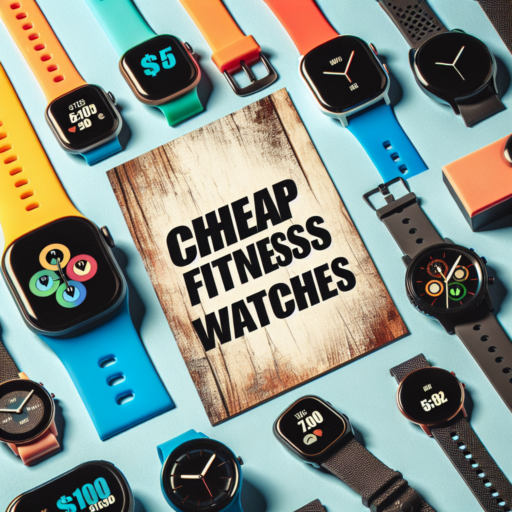What is a cheap alternative to Fitbit?
Finding a cheap alternative to Fitbit has become a priority for many fitness enthusiasts on a budget. With the fitness tracker market expanding, there are several affordable options that provide comparable features to a Fitbit. These devices not only monitor your steps, heart rate, and sleep but also come with added functionalities such as smartphone notifications and waterproof designs, making them versatile companions for your health and fitness journey.
Xiaomi Mi Band series stands out as a leading inexpensive alternative. It offers an impressive array of features, including step counting, sleep monitoring, heart rate tracking, and even support for various sports modes. Despite its low price, the Mi Band has a battery life that rivals, and sometimes exceeds, that of the Fitbit, ensuring you spend more time moving and less time charging.
Another notable mention is the Amazfit Bip series. These watches go beyond basic fitness tracking by providing GPS tracking, weather forecasts, and even Vo2 max estimation. The Amazfit Bip’s reflective color display is easily readable in direct sunlight, making it an excellent choice for outdoor enthusiasts. Moreover, its lightweight design and long battery life make it a comfortable wear for day-to-day use.
Are fitness watches worth it?
The question of whether fitness watches are worth the investment has become increasingly relevant as technology progresses. These devices, designed to monitor a wide range of health and activity metrics, have surged in popularity. But what makes them stand out, and are they truly indispensable for individuals seeking to elevate their fitness game?
Firstly, one significant advantage of fitness watches is their ability to track various health indicators such as heart rate, calories burned, steps taken, and even sleep quality. This constant monitoring offers users a comprehensive overview of their health and activity levels, allowing for tailored fitness plans. Moreover, with real-time feedback, individuals can adjust their workouts on the fly, maximizing efficiency and effectiveness.
Budget vs. Premium Models
When evaluating the worth of fitness watches, the range from budget-friendly to premium models plays a crucial role. While higher-end models offer an extensive array of features like GPS tracking, water resistance, and integration with multiple fitness platforms, budget models cover the basics needed for those new to fitness or those on a strict budget. The choice between the two largely depends on your fitness goals and the specific functionalities you deem necessary.
In essence, determining the value of fitness watches comes down to personal preference and goals. The seamless integration of fitness tracking into daily life appeals to many, offering motivation and insights that were previously hard to come by. Whether for serious athletes or casual users looking to stay active, fitness watches provide a level of convenience and personalization that enhances the overall fitness experience.
What is the difference between a smartwatch and a fitness watch?
Understanding the key distinctions between a smartwatch and a fitness watch can be crucial for individuals aiming to optimize their gadget use, whether for daily activities, managing notifications, or fitness tracking. Essentially, the main difference lies in their core functionalities and the specific features they emphasize to cater to their target user base.
A smartwatch tends to be a more versatile device, designed to act as an extension of your smartphone. This means it not just tracks your physical activity but also allows you to manage emails, texts, calls, and even run third-party apps. On the other hand, a fitness watch is primarily focused on health and activity tracking. It is engineered to provide detailed insights into your workouts, sleep patterns, and overall physical wellness, often with a more robust battery life due to its focused functionalities.
While both gadgets boast overlapping features, such as step counting or heart rate monitoring, the distinction becomes apparent in their application’s depth. Smartwatches generally offer a broad variety of features with a lesser focus on fitness specifics, whereas fitness watches excel in providing comprehensive activity-related data, making them ideal for fitness enthusiasts or athletes looking to closely monitor their physical progress and health metrics.
No se han encontrado productos.
Is Garmin better than Fitbit?
Deciding whether Garmin is better than Fitbit depends on what you’re looking for in a fitness tracker or smartwatch. These brands are giants in the wearable technology market, each offering unique features and benefits to their users. While Garmin is often celebrated for its advanced GPS capabilities and durability, appealing mainly to outdoor athletes and serious fitness enthusiasts, Fitbit is renowned for its user-friendly interface, robust health tracking features, and wide appeal across various fitness levels.
Feature Comparison: Garmin vs. Fitbit
When comparing the features of Garmin and Fitbit, it’s clear that both brands have their strengths. Garmin devices typically offer more in-depth data for activities such as running, cycling, and swimming, making them ideal for those who train competitively or want detailed feedback on their workouts. On the other hand, Fitbit focuses on holistic health tracking, including steps, sleep quality, heart rate monitoring, and stress tracking, which caters to individuals aiming to improve or maintain their overall health.
Price and Accessibility
The price range and accessibility of Garmin and Fitbit devices also play a crucial role in determining which is better suited to individual needs. Fitbit devices are generally more affordable and widely available, making them a great entry point for individuals new to fitness tracking. Garmin’s products, while typically more expensive, offer enhanced durability and advanced features that justify the investment for serious athletes and outdoor adventurers.
In the debate of Garmin versus Fitbit, the better choice ultimately hinges on personal preference and intended use. Whether it’s the comprehensive health monitoring of a Fitbit or the detailed sport-specific data and ruggedness of a Garmin, both brands offer compelling options for a variety of users.




